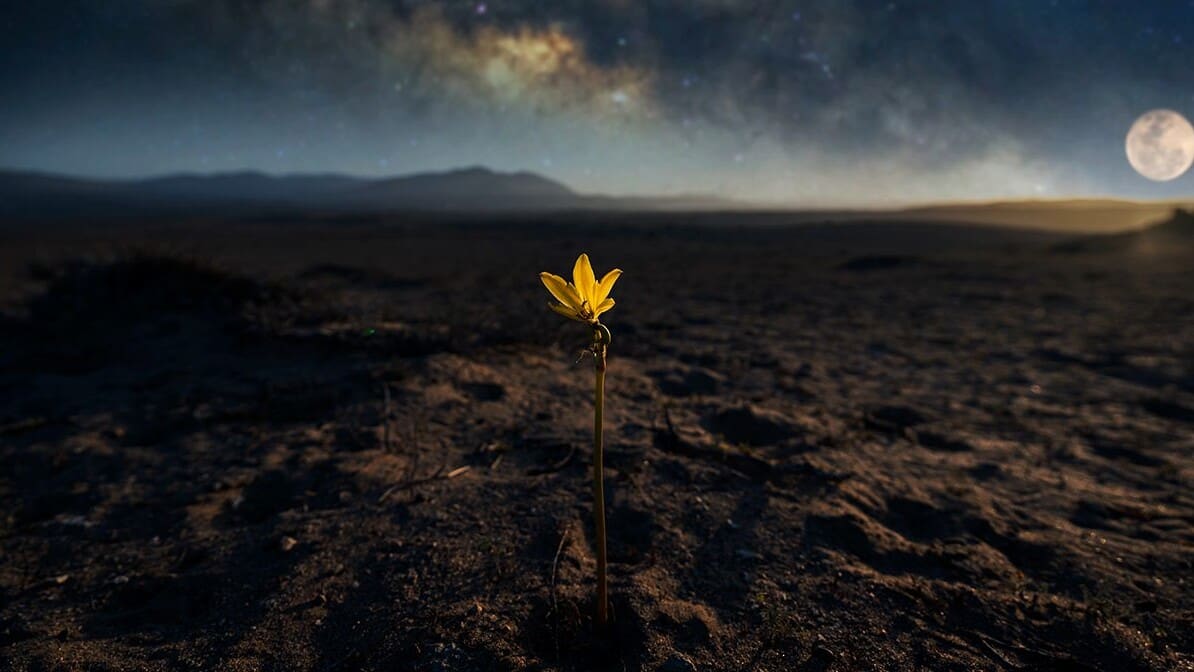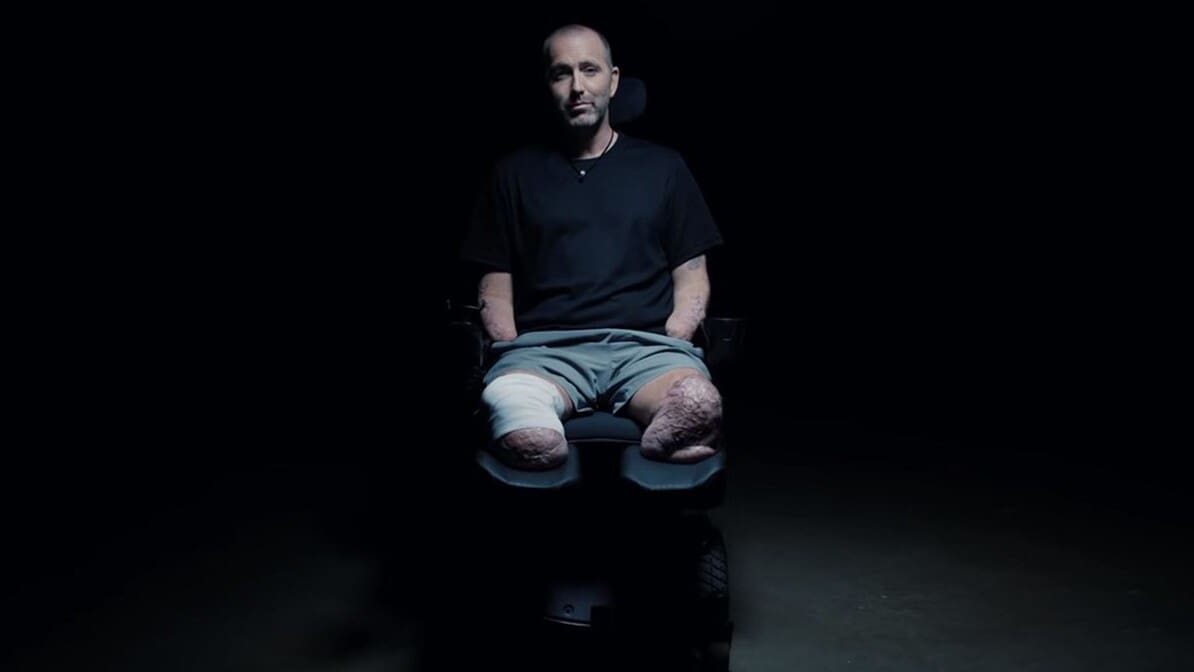
The Faces of Fear
I met with a guy awhile back who was a high-ranking officer in the military. He was about to retire and was trying to figure out his next phase of life. He told me he had no idea what he wanted to do next. After working with lots of people in transition, I’ve found that when someone says they don’t know what they want to do next, it tends to be a sign of fear. They actually do know, but there’s fear involved, so they avoid it by saying they don’t know what they want. I shared that with him.
He straightened up in his seat. “Oh, I’m not afraid.” He talked about dangerous and risky situations he had faced serving all over the world.

I pushed a little more. “Surely, there’s something you’ve been thinking you might want to do.”
He shook his head. After talking a few minutes longer, he said, “Well, I am interested in going back to college.” He paused. “But I’d be the oldest guy in the classes. I haven’t taken a test in years.”
I smiled. “So, are you worried you wouldn’t be able to keep up with the young people and the rigors of school?”
“No. I’m not worried. It’s just. . . ”
We went back and forth for quite some time with him refusing to acknowledge that he had some “concerns”—a.k.a. fears. We left the conversation with him still unsure about what he wanted to do next, mostly because he didn’t want to acknowledge his fear.
Anxiety, worry, concern, avoidance, you name it—they’re all faces of fear. I’ve seen lots of people fail to move forward because of fear, but they don’t recognize it as fear. They call it uncertainty or caution or say, “The timing isn’t right.” But ignoring fear doesn’t make it go away. Fear thrives in the dark and gets bigger. If we don’t acknowledge and face our fear, it comes out in weird ways.
Here are a few ways fear shows up in our lives that keeps us from moving forward:
1. Analysis Paralysis. In the name of preparation (which I’m totally in favor of, by the way), many people research, study, and analyze themselves out of the adventure. Unlimited information on the internet, TV, and social media has paralyzed them. They’ve listened to the experts (especially the ones who confirm their fears). They’ve weighed every possible variable and concluded the risk is just too great. There’s too much to lose—financially, relationally, or reputationally. So they don’t move forward and they get stuck. They stay in their small, limited circle of fear. Eventually, playing it safe leads to feeling disappointed with the world and, ultimately, with themselves. It makes you cynical and resentful of others who have taken the risk and pursued their dreams. It can also lead to lots of regret, wondering what could have been. Google and research all you want, but there are some answers a search engine will never have. Those answers can only be found by courageously stepping out into the unknown. As Reinhard Bonnke once said, “Those who forever seek the will of God are overrun by those who do it.”
2. Feeling Unqualified/Disqualified. When I first started leading outdoor adventures, I would regularly get emails from people asking me what qualifications I had to be leading people in the wild. I’d get really insecure about it, because I have zero qualifications or certifications in outdoor stuff. I just like being outdoors and watching what happens when people go there. I’m not qualified, but I’m doing it! Interestingly, I’d usually find out those people were actually asking me for a job! They wanted to do what I was doing and thought they needed some sort of certification. Funny how that works . . . The brave become leaders.
Too many people spend their entire life in perpetual training—getting more education, reading more books. They never actually do the thing they’re preparing for because they think they need one more qualification in order to be ready. I’m totally in favor of education and training, but if you’re waiting around for the right person to “certify” you, there’s a good chance you’ll never get started. You have to just step into the adventure and learn along the way.
When people saw the boldness of the apostles at Pentecost, many of whom were just fishermen, they realized what set them apart was that they had been with Jesus. We’re all unqualified, but Jesus qualifies us. Jesus paid the price so you could be courageous. You’ve probably heard it before: God doesn’t call the qualified, He qualifies the called.
Don’t let lack of training or past mistakes convince you that you are disqualified from a call. That is a lie. If being messed up or not certified disqualified you from doing something of value, we’d all be disqualified. In fact, pretty much every character in the Bible would be disqualified.
3. Fear of Looking Foolish or Failing. When you’re worried about losing your reputation and being in a position that makes you feel vulnerable, it will keep you from ever stepping into something new. I hate to break it to you, but that fear is a sign of pride. Pride is a weird thing. It can appear as arrogance or fear—at the same time and in the same person. Some of the most arrogant people I know are also the most fearful. Pride tells you to keep things under your control and look like you have it all together. But stepping into the unknown tends to leave you vulnerable and can make you look foolish. Courage requires a willingness to look foolish. As G. K. Chesterton put it: “Anything worth doing is worth doing badly.”³ Sometimes you have to start out doing something badly. You might even need to fail. But eventually, you’ll learn and improve and be glad you tried.
4. Timing. The right time for an adventure often feels like the worst possible time. We get an idea in our minds about when we’ll go for it—once we have more money saved, after the kids are in college, once we pay off the house, once the economy is a bit more stable. The opportunity is sitting right in front of us, but it comes with risk. It seems wise to wait. And sometimes it is wise to wait. But oftentimes, the call to an adventure of faith will appear before you feel ready or at the worst possible time.
When my dad moved our family to Guatemala, my brother and sister and I were all under age twelve. Guatemala was in the middle of a civil war. Nobody was sure who the good guys were and who the bad guys were. It was a really bad time. It would have been much safer to wait until we were older or until peace was declared. But he was courageous, and we reaped the benefits.
Sometimes, we don’t step out because we feel it’s too late. Our best days are behind. But the fact is, if you’re still breathing, you still have a purpose and adventure to pursue. It’s never too late.
5. Opposition. When you decide to step into the unknown, it’s pretty common to get opposition from the very people you would expect to support you. You’ll get negative feedback. They’ll question your decisions or try to hold you back. Your willingness to move forward makes them uncomfortable. Some actually believe they want the best for you when they advise you against
taking the journey. There are all sorts of motivations people have for keeping you where you are, but if you’re feeling the call, you can’t let the opposition hold you back. You’ll have to get over your fear of other peoples’ opinions. Listen to their advice and counsel; God often speaks through people, even enemies—but you must ultimately listen to the guide within you. (More on how to identify that voice in the next chapter.)
Whatever your fear may look like, here’s the important thing to recognize about it: Fear doesn’t go away. It must be acknowledged and faced, otherwise it becomes a constant impediment to your forward movement. You have to recognize the fear and face it wisely, in small doses. The more you face it, the more you become immune to its effects on you. You’ll probably never become fearless, but you can fear less. That’s how you conquer the fear and step into the adventure.
…
3 G.K. Chesterton, What’s Wrong with the World (Mineola, New York: Dover Publications, 2007), 192.
Excerpt taken from Connecting the Dots: What God Is Doing When Life Doesn’t Make Sense by Joël Malm
Order your copy of Connecting the Dots: What God Is Doing When Life Doesn’t Make Sense by Joël Malm
Trending Now
Sign up today for your Inspiration Today Daily Newsletter
Supercharge your faith and ignite your spirit. Find hope in God’s word. Receive your Inspiration Today newsletter now!
Joël Malm
Joël Malm is the founder of Summit Leaders, where he uses outdoor adventure and leadership coaching to help people find their calling and pursue a vision for their lives. His expeditions to places like Mount Kilimanjaro, the Grand Canyon, and Machu Picchu have taken him to more than seventy countries on six continents. He lives with his wife and daughter in Texas. Learn more at joelmalm.com
Related Articles
January 28, 2026
I Just Knew It Was God: From Searching to Finding Faith
From the outside, Ekaterina’s life looked successful. She had a college degree, a strong career,…
January 26, 2026
How to Overcome Old Wounds with Resilience
How Do You Deal with Old Wounds? Everyone is talking about trauma, but very few are talking about…
November 21, 2025
Thank You … Lord
Gratitude transforms our lives and draws us closer to God. This article explores how practicing…
October 27, 2025
So, Is God Good?
Many people wrestle with the question, is God good, especially when life brings pain and loss.…
Next Steps To Strengthen Your Walk
Inspiration Today Newsletter
Supercharge your faith and ignite your spirit. Find hope in God’s word. Receive your Inspiration Today newsletter now!
Christian Articles
Find articles to strengthen your walk and grow your faith. We have a wide range of topics and authors for you.
Submit A Prayer Request
We are here for you. Simply click on the button below to reach us by form, email or phone. Together we will lift our hearts and voices with you in prayer.





